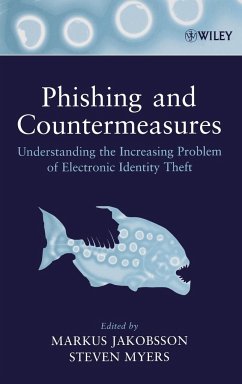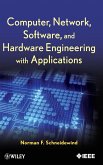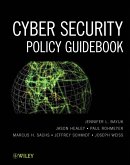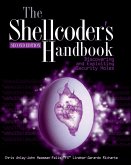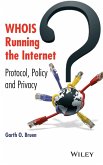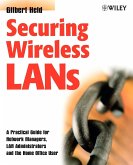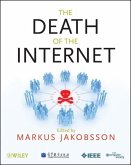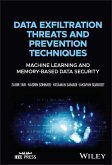"This book is the encyclopedia of phishing. It provides views from the payment, human, and technical perspectives. The material is remarkably readable--each chapter is contributed by an expert on that topic, but none require specialized background on the part of the reader. The text will be useful for any professional who seeks to understand phishing."
--Directors of the International Financial Cryptography Association (IFCA)
Phishing attacks, or the practice of deceiving people into revealing sensitive data on a computer system, continue to mount. Here is the information you need to understand how phishing works, how to detect it, and how to prevent it.
Phishing and Countermeasures begins with a technical introduction to the problem, setting forth the tools and techniques that phishers use, along with current security technology and countermeasures that are used to thwart them. Readers are not only introduced to current techniques of phishing, but also to emerging and future threats and the countermeasures that will be needed to stop them. The potential and limitations of all countermeasures presented in the text are explored in detail. In spite of the fact that phishing attacks constantly evolve, much of the material in this book will remain valid, given that the book covers the general principles as much as actual instances of phishing.
While delving into a myriad of countermeasures and defense strategies, the authors also focus on the role of the user in preventing phishing attacks. The authors assert that countermeasures often fail not for technical reasons, but rather because users are unable or unwilling to use them. In response, the authors present a number of countermeasures that are simple for users to implement, or that can be activated without a user's direct participation. Moreover, the authors propose strategies for educating users. The text concludes with a discussion of how researchers and security professionals can ethically and legally perform phishing experiments to test the effectiveness of their defense strategies against the strength of current and future attacks.
Each chapter of the book features an extensive bibliography to help readers explore individual topics in greater depth. With phishing becoming an ever-growing threat, the strategies presented in this text are vital for technical managers, engineers, and security professionals tasked with protecting users from unwittingly giving out sensitive data. It is also recommended as a textbook for students in computer science and informatics.
--Directors of the International Financial Cryptography Association (IFCA)
Phishing attacks, or the practice of deceiving people into revealing sensitive data on a computer system, continue to mount. Here is the information you need to understand how phishing works, how to detect it, and how to prevent it.
Phishing and Countermeasures begins with a technical introduction to the problem, setting forth the tools and techniques that phishers use, along with current security technology and countermeasures that are used to thwart them. Readers are not only introduced to current techniques of phishing, but also to emerging and future threats and the countermeasures that will be needed to stop them. The potential and limitations of all countermeasures presented in the text are explored in detail. In spite of the fact that phishing attacks constantly evolve, much of the material in this book will remain valid, given that the book covers the general principles as much as actual instances of phishing.
While delving into a myriad of countermeasures and defense strategies, the authors also focus on the role of the user in preventing phishing attacks. The authors assert that countermeasures often fail not for technical reasons, but rather because users are unable or unwilling to use them. In response, the authors present a number of countermeasures that are simple for users to implement, or that can be activated without a user's direct participation. Moreover, the authors propose strategies for educating users. The text concludes with a discussion of how researchers and security professionals can ethically and legally perform phishing experiments to test the effectiveness of their defense strategies against the strength of current and future attacks.
Each chapter of the book features an extensive bibliography to help readers explore individual topics in greater depth. With phishing becoming an ever-growing threat, the strategies presented in this text are vital for technical managers, engineers, and security professionals tasked with protecting users from unwittingly giving out sensitive data. It is also recommended as a textbook for students in computer science and informatics.

